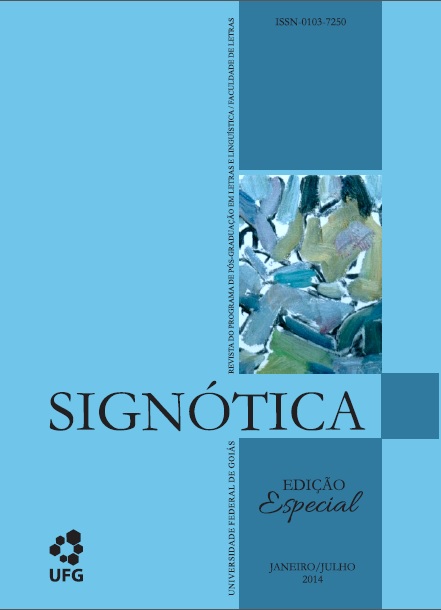Políticas públicas para o ensino de português, em Portugal: a voz de quem implementa e de quem pesquisa
DOI:
https://doi.org/10.5216/sig.v26iesp..31399Palavras-chave:
língua portuguesa, ensino, políticas públicas.Resumo
Como resposta a resultados pouco satisfatórios, obtidos por estudantesportugueses, na entrada do corrente século XXI, Portugal vivencia um contextode intensas reformas educativas no que respeita ao ensino do português. Surge,assim, em 2006, o Programa Nacional de Ensino do Português (PNEP),destinado a professores do 1° Ciclo do Ensino Básico (CEB), com o intuito demelhorar os níveis de compreensão da leitura e de expressão oral e escrita emtodas as escolas do 1° CEB. Incidindo nesse modelo e na respectiva dinâmicade formação contínua que está na base do Programa, neste texto propomonosrealçar as implicações do mesmo na formação inicial, apresentando osresultados de uma investigação que entendemos poder contribuir para futurasexperiências de linguística aplicada no âmbito da consciência fonológica e naaprendizagem da leitura (logo, também, na dimensão ortográfica) e ajudar naprevenção de dificuldades no desenvolvimento de competências de leitura.
Downloads
Downloads
Publicado
Como Citar
Edição
Seção
Licença
Autoras(es) autorizam a Signótica a publicar artigo, caso seja aceito, firmando sua contribuição como original e não submetida a outra editora para publicação. Em caso de aceite e publicação, artigos da Signótica possuem licença Creative Comons CC-BY.






1.png)





